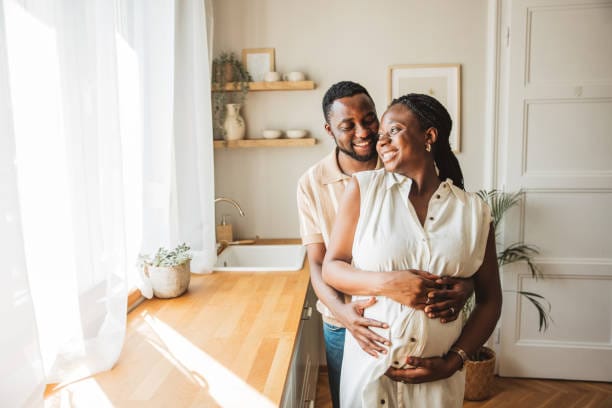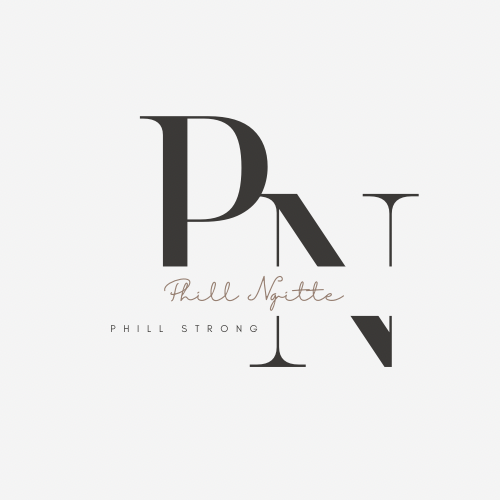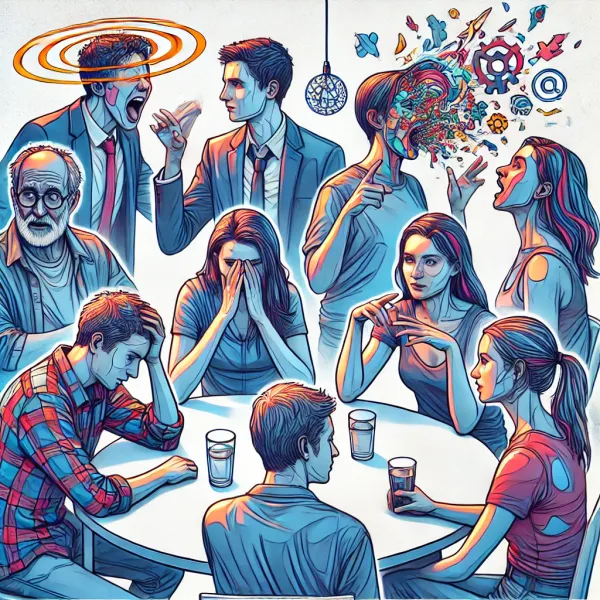Love💖 and Mental Health 🧠: The Beautiful Chaos That Builds or Breaks Us

Love, awww, that thing can make us feel like we’re floating on clouds or drowning in an ocean of confusion. It’s the force behind some of the greatest joys and deepest sorrows in life. Love can be uplifting, inspiring , and healing. Do you remember when we once said that we could never live without that person, see yourself now 😂. But when things go south, it can also trigger stress, anxiety, and emotional turmoil. That is the point we say "I could not believe i fell for such person". 😒
Let’s dive into the good, the bad, and the downright exhausting effects of love on mental health.

The Positive Effects of Love on Mental Health ✅💕
When love is healthy and supportive, it serves as a foundation for emotional well-being. Here’s how:
1. Love as an Emotional Anchor ⚓
Being in a sane loving relationship provides a sense of security and belonging, reducing stress and anxiety. Studies have shown that strong romantic relationships lower cortisol (the stress hormone) and improve overall mental health (Holt-Lunstad, Smith & Layton, 2010). It is a great feeling when you know you can count on someone 24/7 no matter what, it is really reassuring.
Funny Quote: “A good relationship is when one person knows exactly when to talk and when to propose food instead.”
2. Boosts Self-Esteem and Confidence 🦾
A supportive partner or loving family reminds us of our worth, helping us navigate life’s challenges with confidence. When we feel valued and appreciated, we naturally develop a stronger sense of self. This can be a very useful tool when navigating through this crazy world influenced by set standards but having someone telling you "you have ugly toes, but i still love them like that".
Personal Story Placeholder: Love plays a great role in how I see myself and the things I can do to become a better version. When I am in love most of the time I want to become better, hence I pay more attention to things that uplift me and makes me feel stronger to avoid disappointing the person I love. I always try to look at the positive aspects it induces. My worst nightmares are breakups but on the other hand it has always been a breakthrough for me, strange isn't it?
3. Love 💕 and Physical Health 💪: A Surprising Connection ✅
Healthy relationships have been linked to lower risks of depression, better heart health, and even a longer lifespan (Diener & Seligman, 2002). Love literally keeps us alive. Unless, of course, we stress ourselves out over reading "last seen" messages on WhatsApp or checking status if online or not and saying things like "So you are online and do not take time for me?".
Quick Interactive Quiz: How Do You Handle Relationship Conflicts?
Answer these question and see which conflict style describes you best!
When a disagreement starts, what do you do?
- Click on the link below (the blue TRY ME button) to answer the quizz and a quizz will pop up directly,
- Then select your answer,
- Finally click on submit to obtain a personalized answer in regards to your choice.
(Feel free to share your conflict style in the comments below!)

The Negative Effects of Love on Mental Health 💔😫
Unfortunately, love isn’t always sunshine and roses. When it’s toxic or unbalanced, it can take a serious toll on mental well-being. This can be even more serious in long distance relationships.
1. The Anxiety of Uncertainty and Overthinking 😔
Modern dating has introduced new sources of stress: ghosting, bread-crumbing, and the dreaded “What are we?”, " Do you still love me?" conversations. Over-analyzing texts and wondering if “seen at 10:45 PM” without a reply means they’re ignoring you can send anxiety levels through the roof and set up trust issues quickly.
Funny Quote: “ Long distance relationships is spending hours crafting the perfect text message… and then panicking when they just reply with ‘K', 'yep' '👍', '👌'.’” I really hate these replies.
2. Heartbreak and Emotional Trauma 💔
Breakups, betrayals, and toxic relationships can leave lasting emotional scars, sometimes leading to anxiety, depression, or even post-traumatic stress disorder (PTSD) (Fisher et al., 2010). Heartbreak literally activates the same brain regions associated with physical pain.
Personal Story Placeholder: I do not want to talk a lot about this particular issue but it hurts badly and it took me years to get through that. I remember my ever first heart break, the way it got me down and how it changed my way of seeing life with emotional PTSD and the fear of feeling that again. This made me to behave like a cunt on many occasions to avoid being hurt again if i show off my feelings to "easily". Accepting that such things happens and trying to pick the positive from that gave me the motivation to continue going forward. Love Does not DESTROY us, we are are the ones to accept and live in the destruction.
3. Codependency and Loss of Identity 🤯
While love should be about partnership, some relationships lead to unhealthy emotional dependency. When people rely on their partners for happiness or self-worth, they lose their independence and struggle with self-identity. Then at a certain point you have difficulties to know what makes you happy apart being in a relationship with that particular person.
Funny Quote: “Love is great until you realize that you always listened to that song because of your partner although you hated that.”
4. Love and Social Comparison 📴⚖
Social media has made relationships feel like a competition. Seeing picture-perfect couples on Instagram can create unrealistic expectations, leading to feelings of inadequacy. In reality, no one posts the arguments about whose turn it is to do the dishes. We sometimes feel like our relationship is not good enough because poeple we see don't seem to struggle.

Building a Strong Mindset: Managing Love’s Impact on Mental Health 💖🧠💪
While love has its highs and lows, maintaining a strong mindset helps us navigate relationships without compromising mental health.
1. Practice Self-Love and Independence 🧘♀️
Loving yourself first ensures that your happiness isn’t solely dependent on another person. Develop hobbies, friendships, and personal goals outside of your relationship. Try to insert in your relationships without making your partner think they are not valued.
Solution Tip: Treat yourself the way you’d treat someone you love. Take yourself out on dates, prioritize your needs, and never forget—your happiness is your responsibility. In the same way, you are not accountable for your partner's happiness, you just contribute to that.
2. Set Healthy Boundaries ✅
Establishing clear boundaries in relationships prevents emotional exhaustion and ensures mutual respect. Communicate your needs openly and don’t be afraid to say no. The same way you say no, incorporate that your partner can reply the same at any time.
Funny Quote: “Love is letting your partner have the last slice of pizza… but not every time.”
3. Embrace Open and Honest Communication ☯
Many relationship conflicts stem from poor communication. Expressing feelings, discussing issues, and actively listening can prevent misunderstandings and reduce emotional distress.
Solution Tip: If your partner asks, “What’s wrong?” and you say, “Nothing,” but expect them to read your mind, you’re setting yourself up for disappointment. Say what you mean!
4. Learn to Let Go of Toxic Love ☠💔
Not every relationship is meant to last, and that’s okay. Holding onto toxic love out of fear of being alone is like drinking expired milk because you don’t want to waste it. it only makes you sick and can even lead more dramatic scenes.
Solution Tip: If a relationship drains you more than it fills you, it’s time to walk away. Your mental health matters more than maintaining a relationship that no longer serves you. Maybe you will meet again but just let it go for now.
5. Seek Professional Help When Needed 🗣
There’s no shame in seeking therapy or professional guidance when love-related struggles impact your mental well-being. Therapy can help unpack emotional baggage and equip you with tools to build healthier relationships. Talking can sometimes confuse you more so take care to choose wisely and be honest about your feelings.

Conclusion
Love is a paradox. It can heal, but it can also hurt. It can elevate our mental health or push us into emotional chaos. The key to navigating love’s impact lies in balance: nurturing relationships while maintaining independence, setting boundaries, and prioritizing mental well-being.
Whether you’re single, deeply in love, or recovering from heartbreak, remember: Your value isn’t determined by your relationship status. Love should be a source of joy and growth, not stress and self-doubt.
And if all else fails? Just remember: Jollof Rice and red wine never breaks your heart.
References
- Diener, E., & Seligman, M. E. (2002). "Very happy people." Psychological Science, 13(1), 81-84.
- Fisher, H. E., Aron, A., & Brown, L. L. (2010). "Romantic love: A mammalian brain system for mate choice." Philosophical Transactions of the Royal Society B: Biological Sciences, 361(1476), 2173-2186.
- Holt-Lunstad, J., Smith, T. B., & Layton, J. B. (2010). "Social relationships and mortality risk: A meta-analytic review." PLOS Medicine, 7(7), e1000316.




